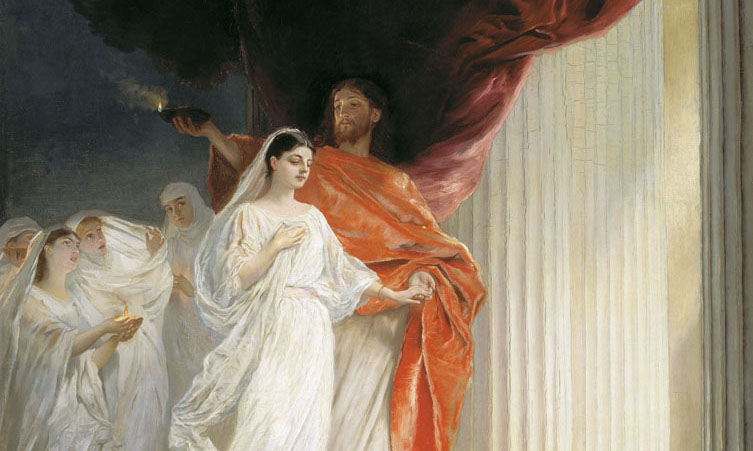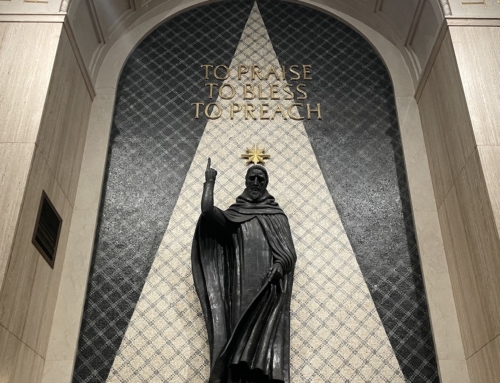Christ’s first coming had a date. Probably between 6 and 4 B.C. He came during the reign of Caesar Augustus “when Quirinius was governor of Syria” (Luke 2:1–2). Christ’s second coming too will have a date. We can imagine: the year 5482? 3200? 2021? He came again in glory during the presidency of Mr. Heraldo Antichristo at the time of the founding of the United Federation of Galaxies. Or so it could one day be recorded were books themselves not to perish on that great day. Though we do not know when this day will come, we know that it will come. We profess this as a central truth of faith every Sunday: “He will come again to judge the living and the dead.” This statement of belief is important, but something more is demanded of us while we wait.
When Christ spoke of this day he did not say, “Believe! The day will come!” Instead, he issues a warning: “Be watchful! Be alert! You do not know when the time will come” (Mark 13:33; cf. Matt 24:37–44 and Luke 21:25–36). As Saint John Henry Newman notes, “We are not simply to believe” the day will come, “but to watch” for the day (Parochial and Plain Sermons IV, Sermon 22).
So important is this imperative that the Apostles often repeat it themselves: “Blessed is he who is awake,” writes Saint John (Rev 16:15). “The end of all things is at hand: be ye therefore sober, and watch unto prayer,” warns Saint Peter (1 Pet 4:7 KJV). “Be watchful!” (1 Cor 16:13) exclaims Saint Paul, joining the chorus. “You yourselves know well that the day of the Lord will come like a thief in the night…. So then let us not sleep, as others do, but let us keep awake and be sober” (1 Thess 5:2, 6).
It has been two millennia since Our Lord and his Apostles called for watchfulness and sobriety. In all that time, the Church has not grown weary or ceased, year and year again, to exclaim, “Watch!”
What does it mean “to watch”? It means to expect what may happen suddenly and without warning, as a thief who comes in the night (Matt 24:34–36; 1 Thess 5:2, 6). It means to be like a servant who goes about the work of his Master and who invests the talents given him by his Master until that Master returns from his journey (Mark 13:34–36; Matt 25:14–30). It means to avoid allowing one’s heart to “be weighed down with dissipation and drunkenness and cares of this life” (Luke 21:34). Stated most positively, it means to be like a virgin who remains awake with extra oil in order to meet the Bridegroom at whatever hour he arrives (Matt 25:1–13). In the words of Newman,
He watches for Christ who has a sensitive, eager, apprehensive mind; who is awake, alive, quick-sighted, zealous in seeking and honouring Him; who looks out for Him in all that happens, and who would not be surprised, who would not be over-agitated or overwhelmed, if he found that He was coming at once. (Parochial and Plain Sermons IV, Sermon 22)
Perhaps 2021 will be the year. Our King will come in glory to claim his throne and exact his judgment. We will see his face and glorious wounds! This world will finally pass away. To imagine that the day could be so close—this should thrill the hearts of the watchful. They not only believe the day will come, but prepare for it daily. With Christ’s second advent, they will cry, “Hail, great day!” for they will have been watching as a bride waits for her beloved. What greater joy could there be than for the Bridegroom to come soon? Would that he came as soon as tomorrow! Hence, even while watching, there is a great cry: “Come, Lord Jesus!” (Rev 22:20).
✠
Image: Ernst Friedrich von Liphart, The Parable of the Wise and Foolish Virgins







